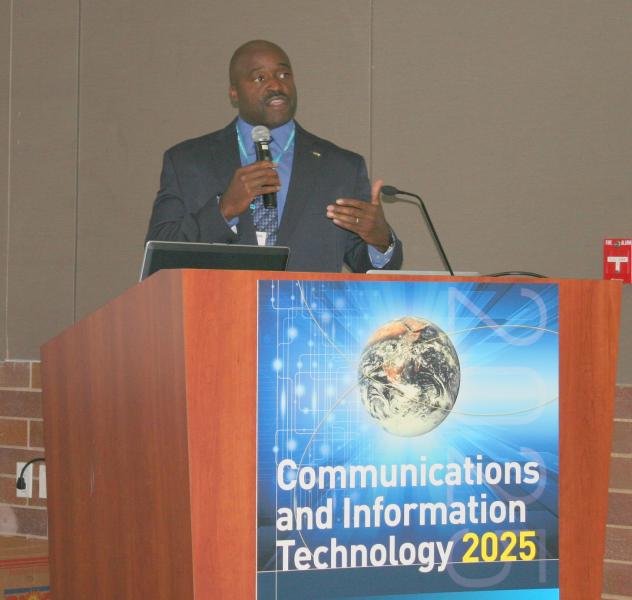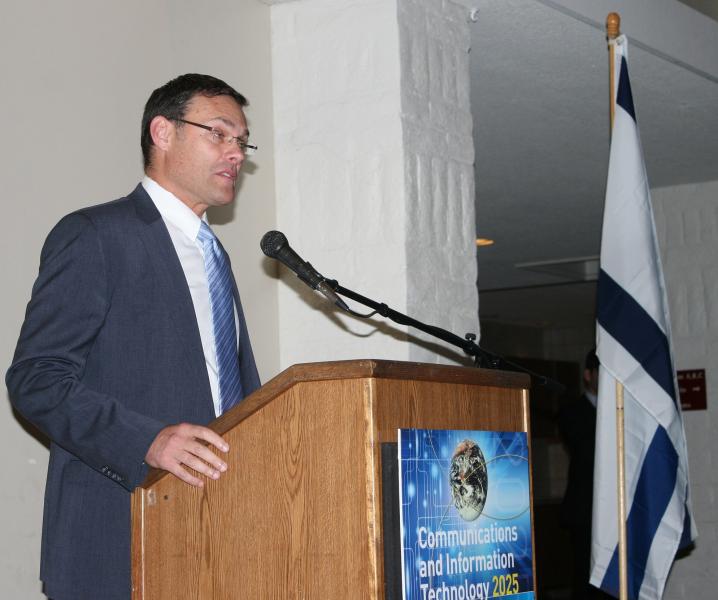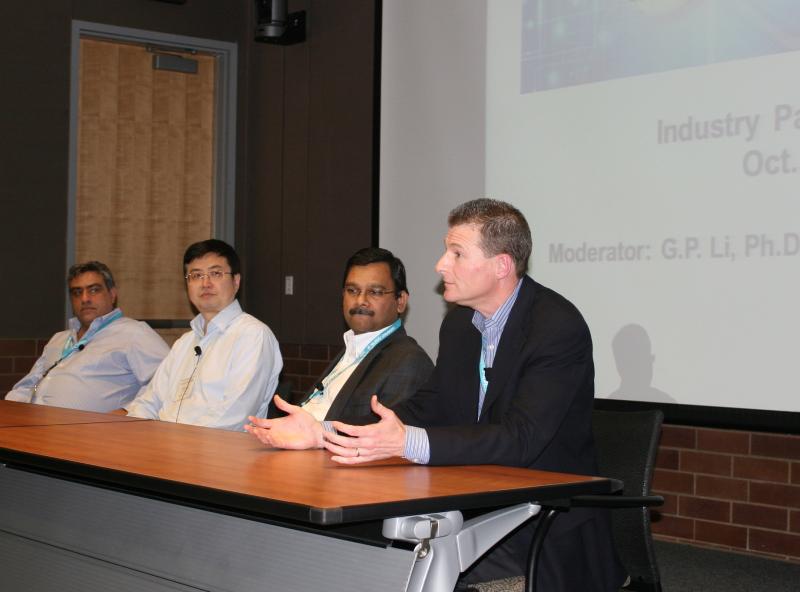Forecasting the Future Interconnected World
Communications and Information Technology 2025 Conference Explored Future of Industry
Telecommunications and information technology have seen a radical transformation in the last 20 years, and by all accounts, innovations in this arena will continue to revolutionize the way we interact personally and globally.
In October, The Henry Samueli School of Engineeringat UC Irvine and the Iby and Aladar Fleishman Faculty of Engineering at Tel Aviv University jointly hosted “Communications and Information Technology 2025” at Calit2 – a two-day affair that brought engineering faculty from both universities together with industry leaders to discuss the future of the communications field. In his introductory remarks, Samueli School Dean Gregory Washington outlined the mission of the conference, stressing the desire to develop long-term collaborations.
 “A primary goal of this conference is to understand the challenges facing higher education,” Washington explained. “Specifically, how the current engineering curriculum can be adapted to address this rapidly growing area of technology, and how to better prepare the world's next-generation engineers and scientists.”
“A primary goal of this conference is to understand the challenges facing higher education,” Washington explained. “Specifically, how the current engineering curriculum can be adapted to address this rapidly growing area of technology, and how to better prepare the world's next-generation engineers and scientists.”
 Plenary sessions addressed the timely topics of cloud and mobile technologies; micro- and nanotechnologies for information processing; and communication, interface and media. Each session included a keynote address, followed by four shorter presentations that examined research trends and challenges. In all, 15 leading faculty members shared their views.
Plenary sessions addressed the timely topics of cloud and mobile technologies; micro- and nanotechnologies for information processing; and communication, interface and media. Each session included a keynote address, followed by four shorter presentations that examined research trends and challenges. In all, 15 leading faculty members shared their views.
The conference followed an academic mission to Israel led by UC Irvine Chancellor Michael Drake last April. The Irvine delegation forged collaborative research agreements, and student and faculty exchanges with Israel’s top universities. In light of this partnership, David Siegel, Consul General of Israel in Los Angeles, delivered a keynote address to a dinner crowd on the opening night of the conference that conveyed the importance of the collaboration to the community.
Siegel was joined in the dinner presentation by Ehud Heyman, dean of The Iby and Aladar Fleischman Faculty of Engineering, Tel Aviv University, who also expressed his desire for future partnerships.
On the second day of the conference, Broadcom co-founder and CTO Henry Samueli shared his vision for the future of communications during a lunchtime keynote presentation. He told the crowd that “the next transformative aspect to communications technology will be in the area of sensors.” Samueli also explained why his Irvine-headquartered company has expanded global operations, particularly in Israel.
 An industry panel discussion, moderated by Calit2 Director G.P. Li, was the final session offering. Four company leaders addressed audience questions about living and working in a hyperconnected world.
An industry panel discussion, moderated by Calit2 Director G.P. Li, was the final session offering. Four company leaders addressed audience questions about living and working in a hyperconnected world.
“There is no doubt that the rapid changes and consequences of living and working in a hyperconnected world will directly impact the development, deployment and delivery of information and communication technologies over the next decade and beyond,” said Li, as he set the stage for the discussion. “But, the questions is, what will those global transformations be and what role will industry, academia and, ultimately, the end-user play?”
